- Home
- Addiction Guides
- Alcoholism and Vertigo
Alcoholism and Vertigo
If you’ve ever felt the room spinning after a few drinks or struggled with dizziness that just won’t go away, you’re not alone.
Alcohol can have a surprising effect on your balance and overall quality of life. For some, these symptoms are fleeting.
For others, they can signal a deeper problem tied to alcohol use or vertigo.
What are the Symptoms of Vertigo?

Vertigo is a sensation that makes you feel like you or the world around you is spinning.
It’s more than just feeling dizzy—vertigo often feels like your balance is completely off, even when you’re sitting still. Some people describe it as a whirling or tilting feeling.
Symptoms of vertigo include:
- Dizziness
- Poor balance
- Hearing loss or ringing in the ears
- Nausea and vomiting
- Loss of balance
- Trouble focusing your eyes[1]
There is a connection between alcoholism and vertigo.
How Is Alcohol-Induced Vertigo Different from Dizziness?
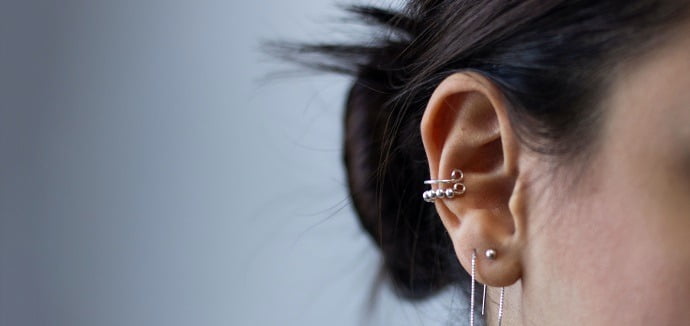
It’s easy to confuse vertigo with dizziness, but they’re not the same.
Dizziness is a more general term that refers to feeling lightheaded, unsteady, or faint. Vertigo, on the other hand, specifically involves that spinning or moving sensation.
If you’ve ever felt like the room was spinning after standing up too quickly, that might be closer to what vertigo feels like.
Chronic alcohol consumption can increase your risks of vertigo.
Common Causes of Vertigo
Vertigo usually happens because of an issue with your inner ear’s fluid balance, which helps control balance and special orientation. Some common causes include:
- Inner ear problems: Conditions like benign paroxysmal positional vertigo (BPPV) happen when tiny particles in your inner ear move to the wrong place, disrupting your balance
- Infections: Inner ear infections, such as labyrinthitis, can cause inflammation that leads to vertigo, often alongside hearing loss or ringing in the ears
- Migraine-related vertigo: Some people experience vertigo as part of a migraine, even without a headache, often triggered by stress, lights, or certain foods[2]
- Consumption of alcohol: alcohol use can increase your chances of vertigo
Understanding these basics can help you know when to seek help and what to expect.
What Does Research Say About Vertigo?

Vertigo is a type of dizziness caused by problems in the balance system of the inner ear.
There are three common types:
- Constant vertigo
- Repeated episodes
- Vertigo triggered by certain head movements
A doctor can usually tell if the cause is from the inner ear (peripheral) or the brain (central) by asking about your symptoms.
The most common type, benign paroxysmal positional vertigo (BPPV), can be fixed with simple head movements.
Other causes include vestibular neuritis, Ménière’s disease, migraines, and poor blood flow to the brain.[3]
Alcohol’s Influence on the Balance System

Your ability to stand upright, walk steadily, and feel balanced relies on your body’s vestibular system.
This system, located in your inner ear, works like a finely tuned sensor. It helps your brain understand your body’s position and movement.
When everything is working smoothly, you feel stable and steady.
However, excessive alcohol consumption can disrupt this balance in several ways.
- Inner Ear Fluid Disruption: Alcohol changes the density of the fluid in your inner ear, causing your brain to misinterpret movement and leading to a spinning sensation
- Delayed Signal Processing: Drinking alcohol slows the communication between your inner ear and brain, making it harder to maintain balance and coordination
- False Movement Signals: Alcohol creates a mismatch between what your inner ear senses and what your eyes perceive, leading to dizziness and instability[4]
By understanding these effects, you can see how alcohol can throw off your balance, even if you don’t drink heavily.
Taking steps to stay hydrated and limit alcohol intake can make a big difference in how steady you feel.
If you’ve ever felt dizzy or like the room is spinning after drinking, you might wonder if alcohol and vertigo are connected.
For occasional drinkers, these feelings might be temporary. But for those who drink heavily or regularly, vertigo can become a more serious, ongoing issue.
How Alcohol Use Leads to Vertigo
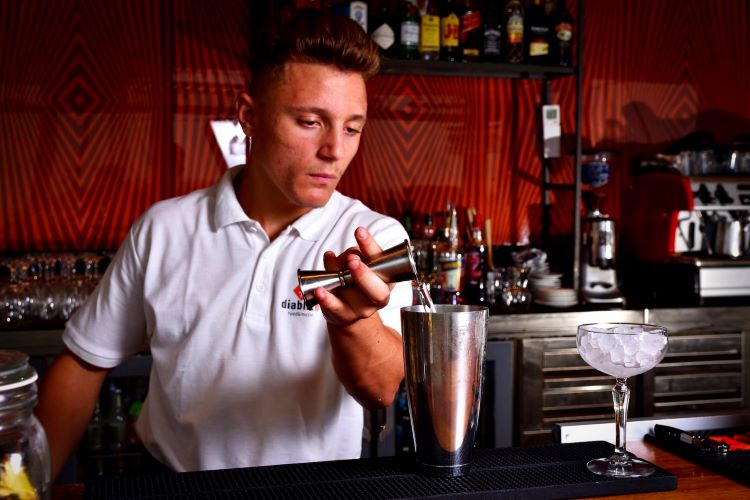
When you drink too much, alcohol affects your balance system. The vestibular system helps you stay upright and aware of your body’s position.
Alcohol slows down the normal functioning of signals from your inner ear, throwing off this delicate balance, which can make you feel dizzy or unsteady.
Over time, if you’re dependent on alcohol, these effects can become more pronounced. You might experience vertigo not just while drinking but also when you’re sober or trying to quit.
The Science Behind Alcohol and Vertigo
Here’s how alcohol can cause vertigo:
- Slows Brain Communication: Alcohol affects how quickly your brain receives signals from your balance system, making it hard to stay steady on your feet
- Triggers Withdrawal Symptoms: If you stop drinking after heavy use, your body may react with withdrawal symptoms, including vertigo and dizziness[5]
Managing Vertigo Induced by Alcohol Consumption

If you’ve ever felt the room spin after drinking or noticed lingering dizziness, you’re not alone.
Alcohol can throw off your balance, and for some people, this can lead to ongoing vertigo. But the good news is there are ways to manage these symptoms and feel more steady.
Here’s how you can tackle alcohol-related vertigo and start feeling like yourself again.
Treatment Options for Alcohol-Related Vertigo
A healthcare professional will be able to assess the severity of your vertigo episodes.
If your vertigo is linked to drinking, the first step is to cut back or stop alcohol use. But there are also medical treatments that can help with the symptoms:
- Medications: Doctors may prescribe medicines like antihistamines or anti-nausea drugs to ease dizziness and nausea
- Vestibular Rehabilitation Therapy: This is a type of physical therapy designed to strengthen your balance system and reduce vertigo episodes
- Hydration Therapy: If dehydration from drinking is making your vertigo worse, staying properly hydrated or getting IV fluids can help
- Simple Head Movements: Turning and hanging your head can help[6]
If your vertigo is severe or doesn’t go away, it’s important to see a healthcare provider to rule out other causes.
Lifestyle Changes to Ease Vertigo
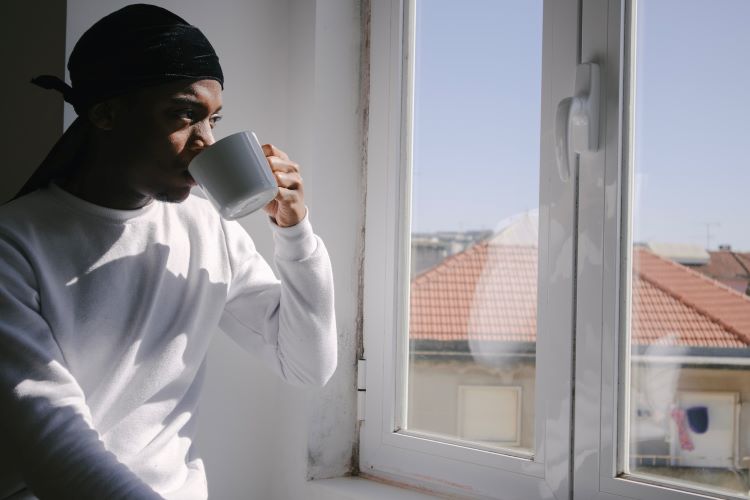
Making simple changes to your daily routine can also help manage vertigo:
- Reduce or Eliminate Alcohol: Cutting back on drinking is the most effective way to prevent alcohol-related vertigo
- Dietary Adjustments: Reducing salt, and caffeine can help manage conditions like Ménière’s disease and migraine-associated vertigo
- Hydration and Exercise: Staying hydrated and maintaining a healthy lifestyle can reduce vertigo symptoms in many cases[7]
Coping Strategies for Alcohol Use Disorders
If you’re struggling to cut back on drinking, you’re not alone. Here are some ways to get support:
- Talk to Someone You Trust: Sharing your concerns with a friend or family member can make a big difference
- Join a Support Group: Groups like Alcoholics Anonymous (AA) offer a space to connect with others facing similar challenges
- Seek Professional Help: Therapists and addiction specialists can guide you through treatment options tailored to your needs
- Mindfulness and Relaxation Techniques: Practices like deep breathing, meditation, or yoga can help manage stress and reduce the urge to drink
If you’re dealing with frequent dizziness or vertigo after drinking, it might be time to reach out for medical help.
While occasional light-headedness after a night out is common, persistent or severe vertigo could point to a bigger issue.
Getting professional advice can help you find the cause and the right treatment.
Why You Should See a Healthcare Professional for Alcoholism

A doctor can help you figure out if your vertigo is linked to alcohol or another health condition from looking at your symptoms and medical history.
They might run tests to check your balance system, inner ear, or even your heart health.
They can also give you more detailed advice about the relationship between alcoholism and vertigo.
If alcohol is the cause, they can guide you on how to reduce or stop drinking safely.
This is especially important if you’ve been drinking heavily for a long time, as quitting suddenly can sometimes lead to withdrawal symptoms, including vertigo.
Ignoring these signs can make things worse. The sooner you get help, the sooner you can start feeling better.
Make an appointment with your GP to receive medical advice and management of your vertigo symptoms.
Support and Therapy for Alcohol Dependence

If cutting back on alcohol feels difficult, you don’t have to do it alone. There are plenty of resources that can support you:
- Counselling and Therapy: Talking to a therapist can help you understand why you drink and give you strategies to manage cravings
- Support Groups: Groups like Alcoholics Anonymous (AA) or SMART Recovery connect you with people who’ve faced similar struggles
- Medical Detox Programmes: In more serious cases, detoxing under medical supervision ensures you stay safe while your body adjusts
Steps Towards Recovery and Balance
Recovering from alcohol dependence doesn’t happen overnight, but small steps can lead to big changes.
- Set Small Goals: Start with manageable goals, like cutting down the number of drinks per week.
- Build a Support Network: Surround yourself with people who support your journey, whether it’s friends, family, or professionals.
- Stay Active and Healthy: Exercise, eat well, and stay hydrated to help your body recover and reduce vertigo symptoms.
Preventative Strategies
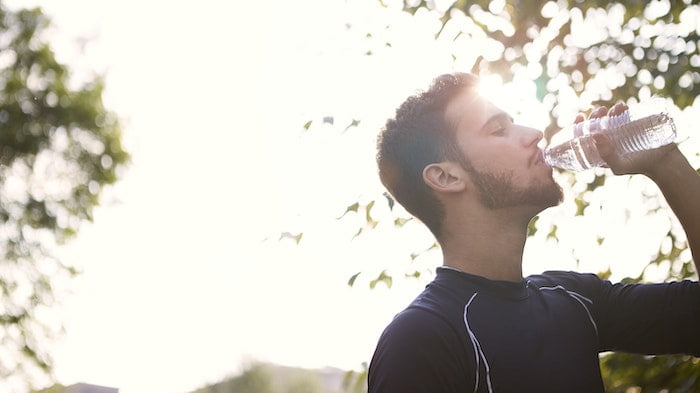
If you’ve experienced dizziness or vertigo after drinking, there are steps you can take to prevent these symptoms from happening again.
Making a few changes to your habits can help you feel more balanced and improve your overall health.
Steps to Reduce Alcohol Intake
Cutting back on alcohol is one of the best ways to prevent vertigo. You don’t have to quit completely if you’re not ready, but small changes can make a big difference.
- Set Limits: Decide how many drinks you’ll have before you start drinking and stick to it
- Drink Slowly: Sip your drinks and space them out over time. This gives your body a chance to process the alcohol
- Choose Lower-Alcohol Drinks: Opt for beverages with lower alcohol content, like light beer or wine spritzers
- Plan Alcohol-Free Days: Schedule days in your week when you don’t drink at all. This gives your body time to recover
Stay Hydrated and Live Healthy
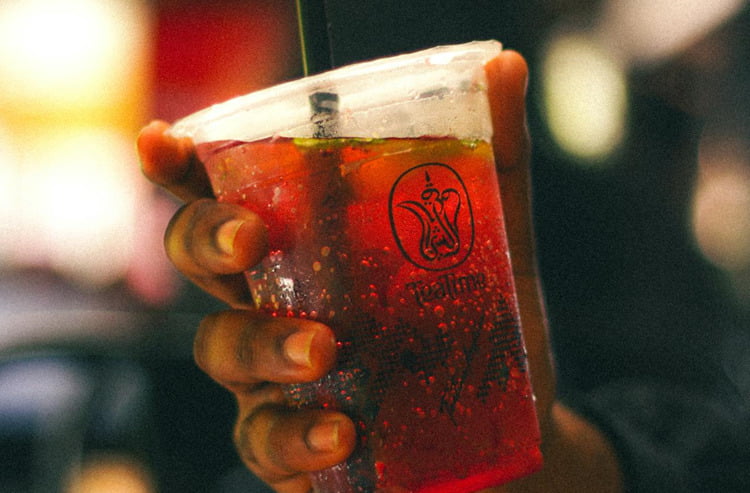
Alcohol can dehydrate you, which makes vertigo worse. Staying hydrated and maintaining a healthy lifestyle will help reduce your risk of dizziness.
- Drink Water: For every alcoholic drink, have a glass of water. This helps keep you hydrated and can slow your drinking
- Eat Before and While Drinking: Eating helps slow down how quickly alcohol enters your bloodstream
- Exercise Regularly: Physical activity improves your balance and overall health
- Get Enough Sleep: Being well-rested helps your body process alcohol more effectively and keeps your balance system strong
What are the Risk Factors for Alcohol-Induced Vertigo?

Some people are more prone to vertigo after drinking. Knowing your risk can help you stay ahead of the problem.
- Personal Health History: If you’ve had vertigo or balance issues before, alcohol might make them worse
- Medications: Some medicines can interact with alcohol, increasing dizziness or balance problems
- Chronic Alcohol Consumption: Drinking a lot of alcohol can increase your risks of vertigo
- Family History: If balance problems run in your family, you might be more sensitive to alcohol’s effects[8]
Treatment Options for Alcoholism
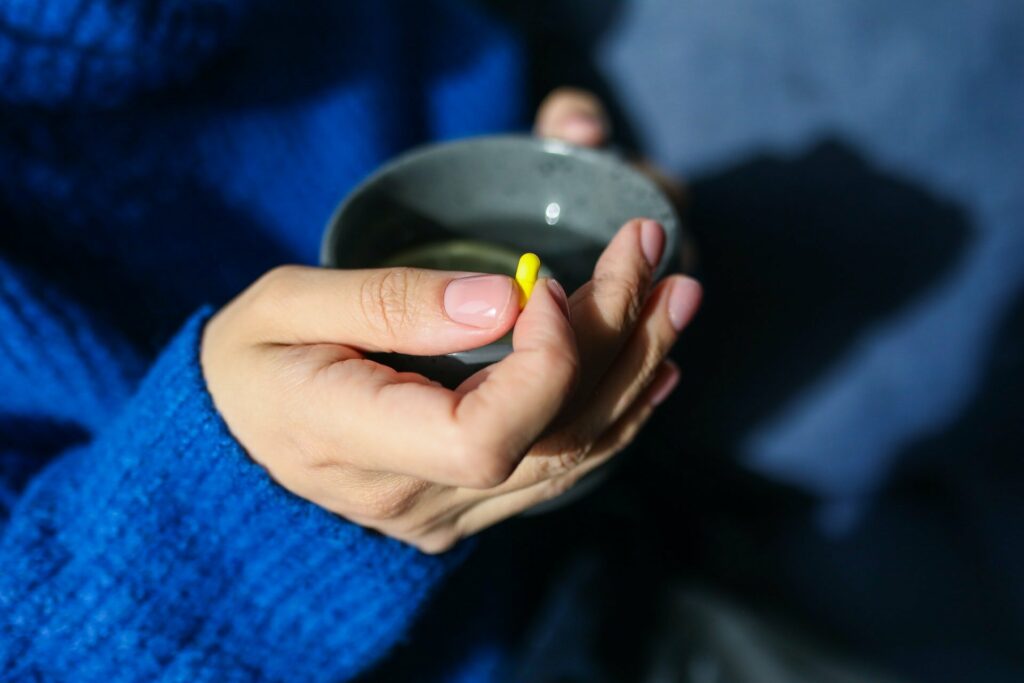
There are various ways to treat alcoholism, and the most effective approach will depend on your individual needs and circumstances.
Medications for Alcohol Dependence
The NHS recommends several medications to support alcohol recovery:
- Disulfiram (Antabuse) – Causes unpleasant reactions like nausea if alcohol is consumed, helping to prevent relapse
- Naltrexone – Reduces the enjoyment of drinking, making it easier to limit your intake
- Acamprosate (Campral) – Helps manage cravings after you’ve gone through detox
- Nalmefene (Selincro) – Designed to prevent relapse or assist in cutting down drinking, but it’s only prescribed alongside other treatments[9]
Behavioural Therapies for Alcohol Use

These treatments focus on changing how you think and behave around alcohol:
- Keeping a Drinking Diary – Writing down when, where, and how much you drink helps track habits and identify patterns
- Brief Interventions – The NHS provides short counselling sessions (5-10 minutes) to help you reflect on your drinking habits
- Therapy Options – Common therapies include cognitive-behavioural therapy (CBT), dialectical behaviour therapy (DBT), motivational interviewing, 12-step facilitation, contingency management, and family therapy
Support Groups and Free Services
Many organisations offer free support to help individuals and families affected by alcoholism:
- Alcoholics Anonymous (AA)
- We Are With You
- Alcohol Change UK
- Turning Point
These resources provide guidance, community support, and practical advice to help you on your recovery journey.
Frequently Asked Questions (FAQs)

Can alcohol consumption lead to vertigo even if I’m not an alcoholic?
Yes, even moderate drinking can cause vertigo due to its effects on the inner ear and balance systems.
Is vertigo a typical symptom during alcohol withdrawal?
Yes. Alcohol affects the brain and balance system, so when it’s suddenly removed, you might feel dizzy or experience a spinning sensation.
How long does vertigo caused by alcohol last?
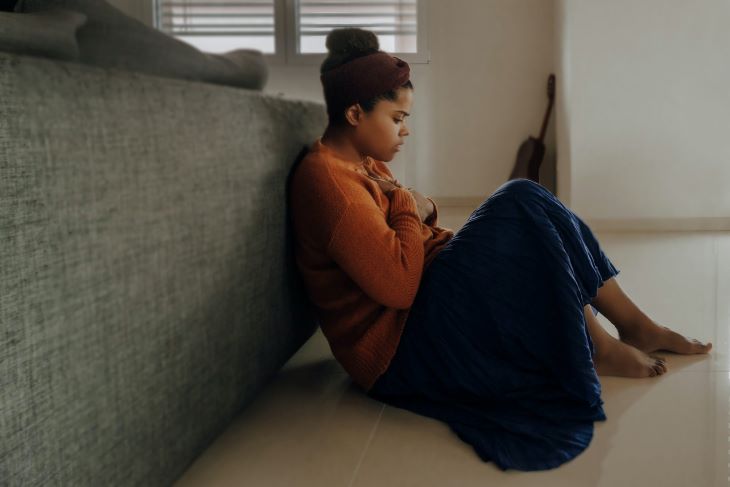
The duration varies; acute episodes may last a few hours, while chronic cases can persist longer, especially with continued alcohol use.
Can long-term alcohol use cause permanent balance issues?
Chronic alcohol abuse can damage the vestibular system, potentially leading to persistent balance problems and vertigo.
What treatments are available for vertigo related to alcohol use?
Treatments may include medications, vestibular rehabilitation, lifestyle changes, and addressing alcohol dependence.
Conclusion

While occasional dizziness after a night out might seem normal, regular or severe vertigo could point to a deeper problem, especially if you drink heavily or often.
The good news is that reducing your alcohol intake, staying hydrated, and making healthy lifestyle choices can help ease these symptoms.
References
[1] https://www.neurologic.theclinics.com/article/S0733-8619(05)00005-8/abstract
[2] https://www.thelancet.com/journals/lancet/article/PIIS0140-6736(98)05430-0/fulltext
[3] https://www.thelancet.com/journals/lancet/article/PIIS0140-6736(98)05430-0/abstract
[5] https://www.niaaa.nih.gov/alcohols-effects-health/alcohols-effects-body
[6] https://pmc.ncbi.nlm.nih.gov/articles/PMC3752584/




